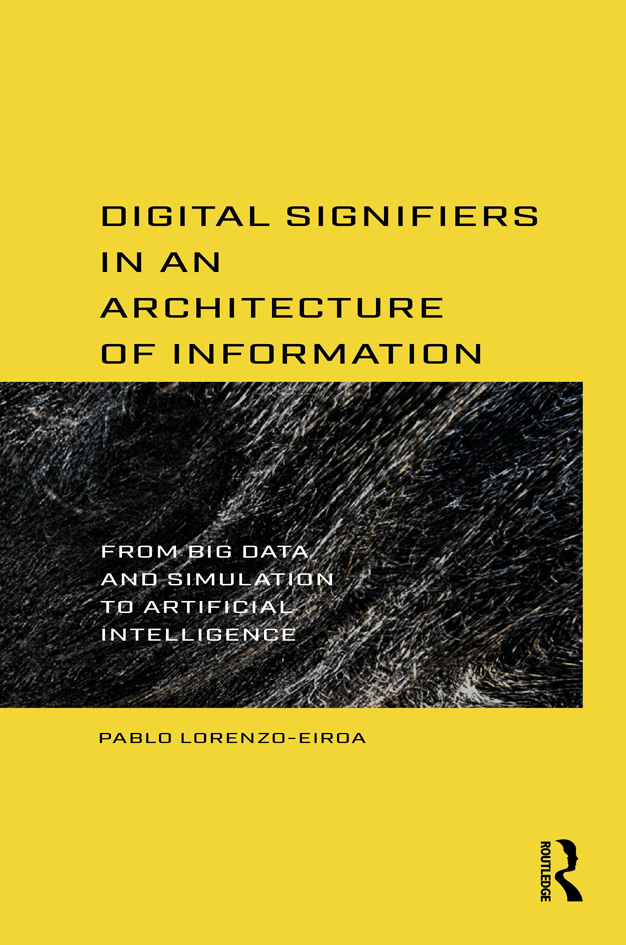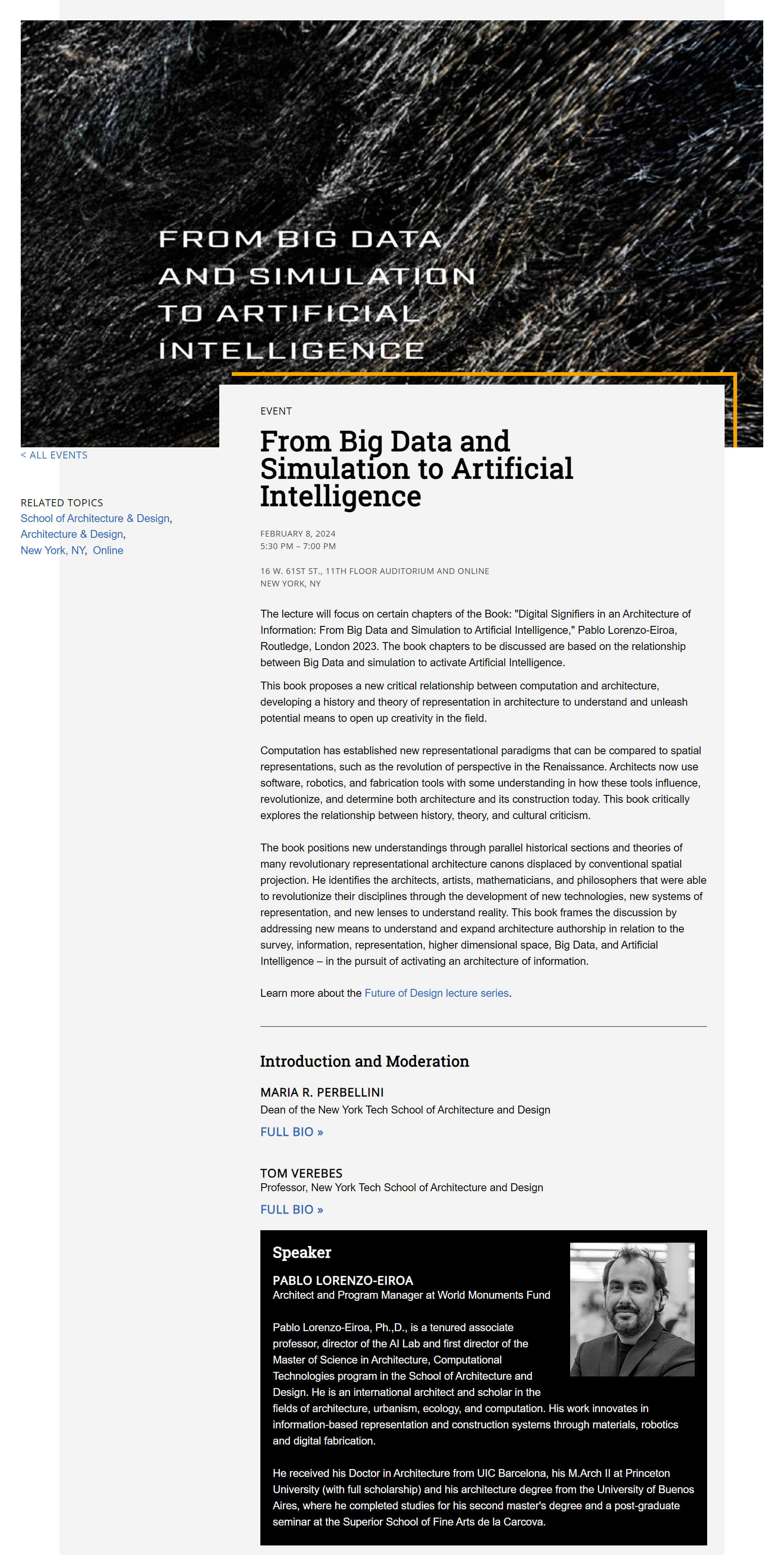2022-02 Pablo Lorenzo-Eiroa's
Research on Artificial Intelligence activates
robotic automation as emergent programming. Usually Midjourney is used to either develop predictive AI or generative AI
of images resolving vision features such as perspective, rendering
light raytracing and other features. Through NLP activating prompt
engineering in LLM, activating a program of a program, the research
developed through Midjourney's generative AI framework an emergent
programming. Since Midjouney was not trained at the time to recognize simulation
(January-July 2022 trial version), the project through several
forced cycles was able to recognize visual features in images and
recognize the task to resolve by activating an emergent programming
able to resolve a task from data patterns. The project activated
several definitions of AI: from self simulation to a program of a
program, to emergent programming. The project also activates
feedback between environmental simulation and architecture and
urbanism optimization in relation to the applied simulation,
searching for optimal building and city blocks forms that perform,
activate and enhance environmental corridors to promote the lowering
of the heat island effect in cities.
Credits: Top images feature based
segmentation, Pablo Lorenzo-Eiroa over NASA satellite image of
Mississippi River Delta, 1998-2004. Images below, Sedimentation
process through Midjourney, Pablo Lorenzo-Eiroa, 2022.
Diffusion Models AI images retrieved via API
through MidJourney. We understand that Midjourney breaks
international copyright laws by retrieving copyrighted material. We
did as much as we could to work out images we know are of free
copyright use including our own images as far as we could. We also
aim at activating scientific validation and accurate methods which
are not copyrighted.
For more information and description of the
research and findings refer to the book
"Digital Signifiers in an Architecture of Information: From Big Data
and Simulation to Artificial Intelligence", Pablo Lorenzo-Eiroa,
Routledge, London 2023:

